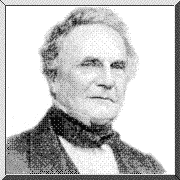 Charles
Babbage, was
born in England on December 26, 1792. He attended Cambridge
University. Later, in 1816, he became a fellow of the Royal Society.
During his working career he was a professor of mathematics at
Cambridge University.
Charles
Babbage, was
born in England on December 26, 1792. He attended Cambridge
University. Later, in 1816, he became a fellow of the Royal Society.
During his working career he was a professor of mathematics at
Cambridge University.
Babbage is known for his ideas about building an "analytical engine", the predecessor of the digital computer. He proposed operations research which involves the idea of using machines to perform routine mathematical operations and thus deleting drudgery and errors in human calculation. Although he never built his computer, his ideas influenced those who later carried out his ideas.
Among Babbage's writings are Reflections on the Decline of Science in England written in 1831 and On the Economy of Machinery and Manufactures (1833).
Babbage died on October 18, 1871.
Archibald, R.C. (1949). Outline of the History of Mathematics. New York: Mathematics Association of America.
Cajori, F. (1980). A History of Mathematics. New York: Chelsea House.
Eves. H. (1976). An Introduction to the History of Mathematics. New York.
Melson, D., Joseph, G.G, & Williams, J. (1993). Multicultural Mathematics. Oxford: Oxford University Press.
Struik, D.J. (1987). A Concise History of Mathematics. New York: Dover Publications.